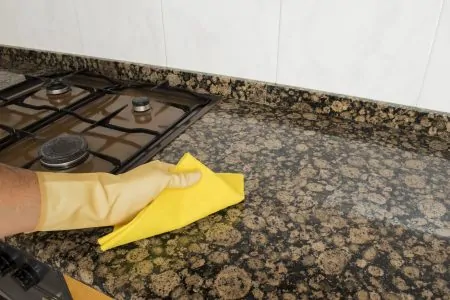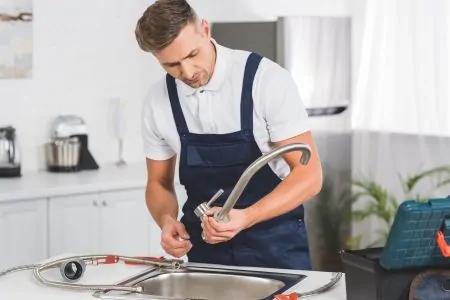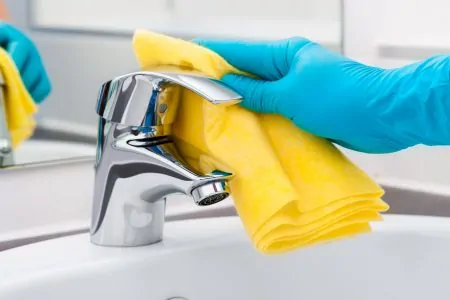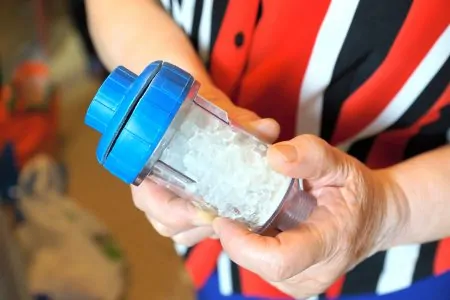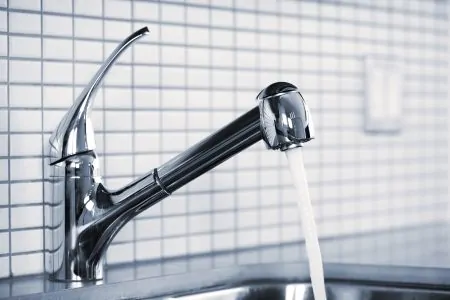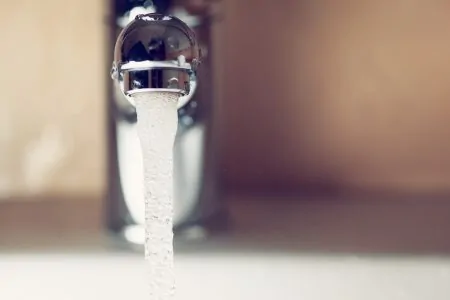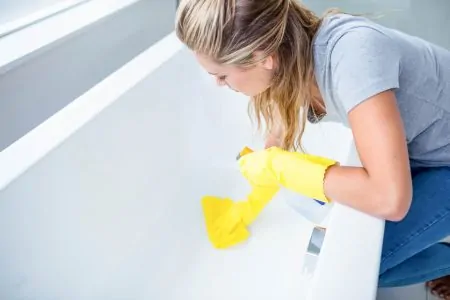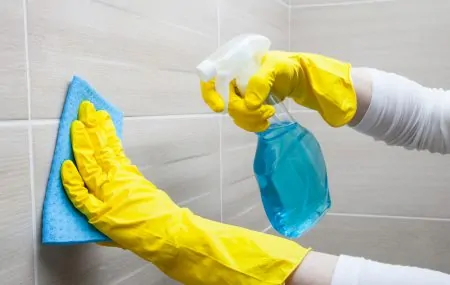Installing granite worktops is a proven and reliable way to add a touch of luxury to your kitchen or bathroom. As it is a natural stone, it is timeless and will complement both traditional and modern designs.
Granite is available in numerous shades and no two pieces are identical, making each worktop unique. However, hard water stains can hide the shine of the quartz and feldspar in the granite, diminishing its effect.
In this article, we will explain why hard water stains appear and how to remove those hard water stains from granite surfaces. We will also share some advice on how to care for your granite worktops to keep them looking at their best.
Key Takeaways
- Why hard water stains appear: Hard water contains minerals like calcium and magnesium, which leave deposits on granite surfaces when the water evaporates.
- Remove light stains: Use a mild detergent and a soft-bristle brush to gently scrub the stain, then rinse with clean water and dry with a towel.
- Remove stubborn stains: Create a paste with baking soda and water, apply it to the stain, and scrub gently with a soft-bristle brush. Rinse with fresh water and dry with a towel.
- Caring for granite: Protect the sealant, avoid acidic cleaners, and reseal your granite surfaces every few years to keep them looking their best.
Why Does Hard Water Stain Granite?
Granite is one of the most popular materials for adding a touch of luxury to kitchens and bathrooms. However, these are also the parts of our homes where we use the most water. Water will inevitably end up splashing onto your countertops, which can lead to stains if you live in a hard water area.
Hard water contains minerals, including calcium and magnesium. When this water is left to stand on your worktops, it will eventually evaporate, leaving its mineral content behind. In time, these minerals will accumulate and you might notice dull white marks on your granite (1).
Mineral deposits won’t damage your granite surfaces but they will conceal much of what makes them beautiful. The longer you leave these stains, the harder they will be to remove. You will need to use different methods to get hard water stains off granite, depending on the severity of the stains themselves.
Daily Cleaning for Light Stains
Use a mild detergent and water on a sponge to clean your granite surfaces daily. Alternately, you can find a cleaning product that is designed specifically for use on stone.
Be Careful
Choose one from a specialist stone care company such as Granite Gold, and be sure to follow the manufacturer’s directions to use it safely.
Pro Tip
Light Hard Water Stains
If you notice some light granite discoloration around your sink or basin, it can usually be easily removed:
- Detergent: Use a mild detergent and a brush with soft bristles (or an old toothbrush).
- Scrub: Apply your cleanser to the stain and gently scrub it with the brush to lift the mineral deposits.
- Rinse and dry: Once the deposits are removed, rinse the area with clean water and dry it with a towel.
Try This
Stubborn Hard Water Stains
If you can’t get rid of hard water stains on granite using detergent and a brush, you can try a trusted home remedy — baking soda. This method might require several applications to completely remove the stain, so it is important to be persistent!
- Create a paste: Mix baking soda with a small amount of water until it forms a paste.
- Scrub: Apply the paste to the hard water stain and gently scrub it with a soft bristle brush.
- Finish: Rinse the area with fresh water and dry it with a towel.
Tough Stains Around Faucets
Mineral deposits tend to accumulate around the base of faucets, especially if they are leaking. If you notice these water rings on the granite around your faucet, you need to bring out stronger tools — a plastic scraper or a razor blade.
Be Careful
- Set up: Take a plastic putty knife and make sure the edge is flat against the granite.
- Scrape: Remove the mineral deposits by pushing the blade against them while applying gentle pressure.
- Wipe, rinse, and dry: The mineral deposit should start to flake off. Once it is dislodged, it can be wiped away with a sponge, rinsed with clean water, and then dried with a towel.
If the putty knife doesn’t work, you can use a sharp, clean razor blade. Again, make sure the blade is level with the granite and work slowly and gently to loosen mineral deposits. When using a razor, it is important to take extra care not to cut your fingers or the surface of the granite.
Suggestion
Caring for Granite
- Protect the sealant: Granite is tough and durable, but if you damage the sealant or the surface of the stone, it can become porous (2). If this happens, it will stain more easily and become far more difficult to clean.
- Avoid acid: Don’t use acidic cleaners, even natural ones such as vinegar or lemon juice. Also, avoid steel wool and other abrasive cleaning tools that can scratch the surface or sealant.
- Reseal: Get your granite surfaces resealed every few years to protect the stone from damage. You can check whether or not the stone sealant is wearing away by placing a drop of water onto the surface of the granite. If the drop stays in place, the sealant is working. If it soaks into the granite, the sealant needs to be replaced.
